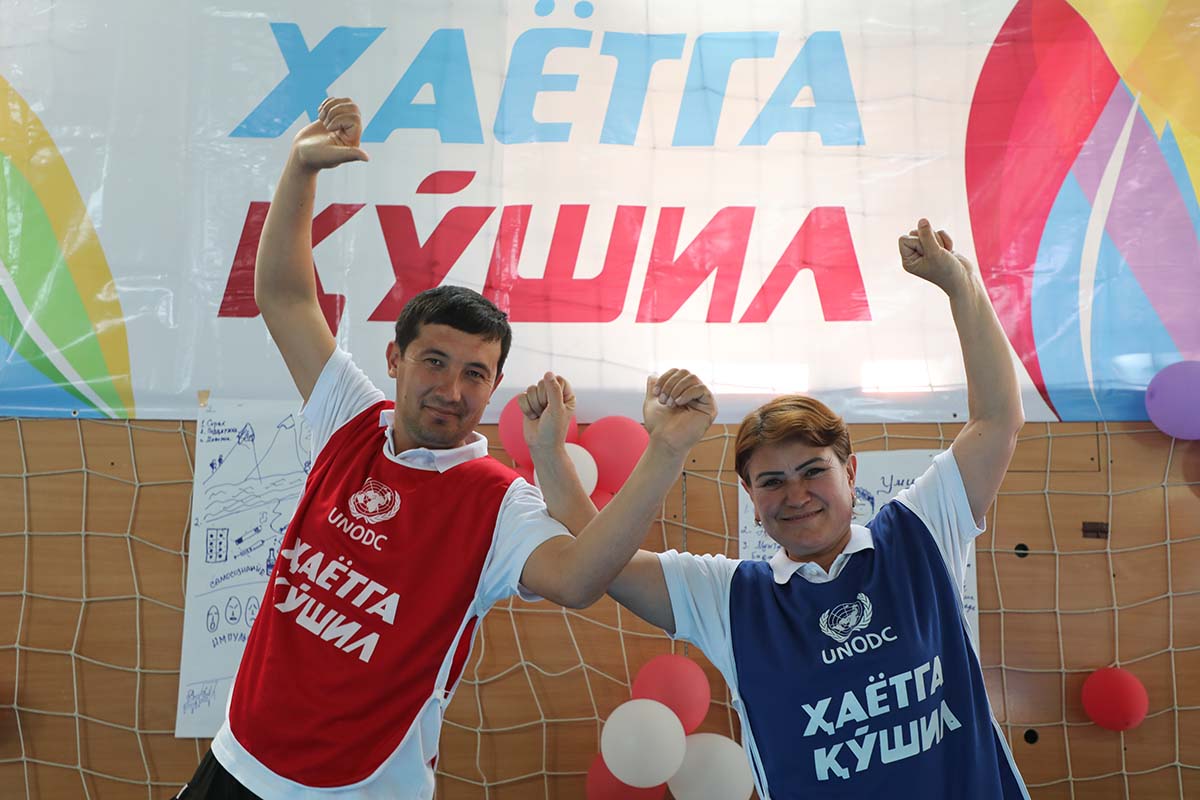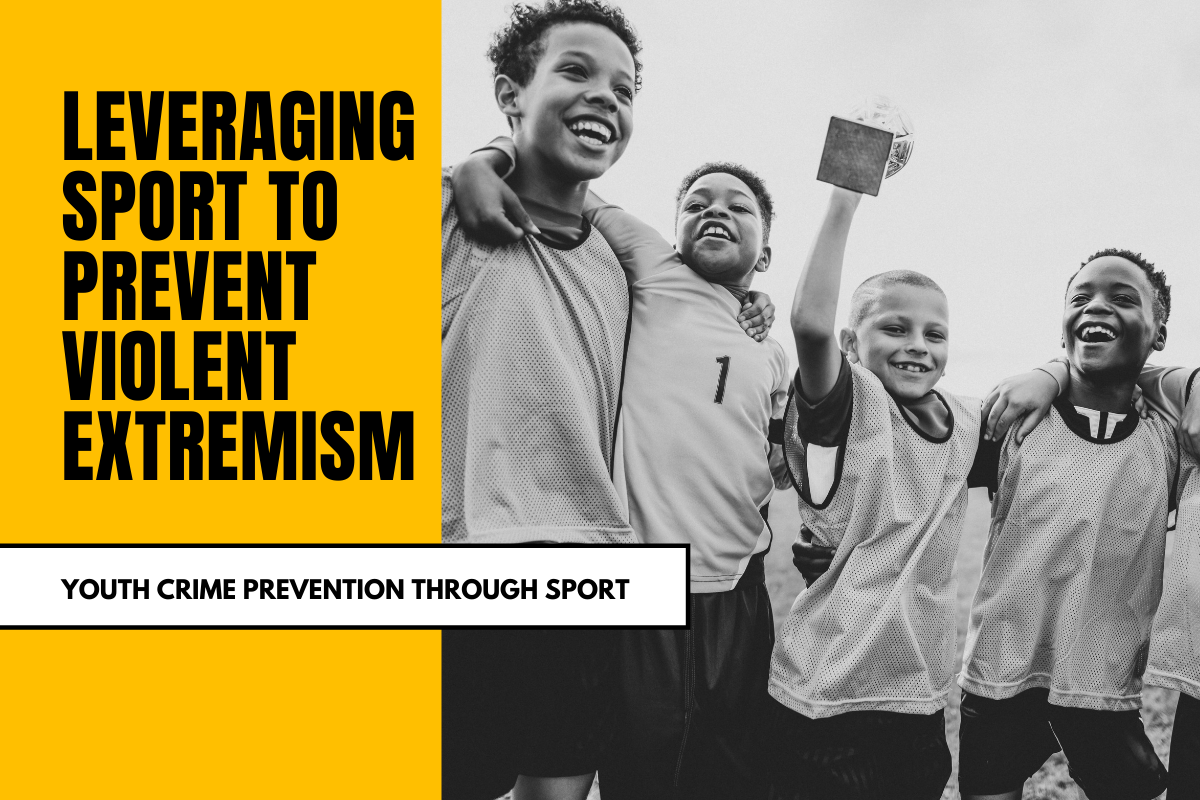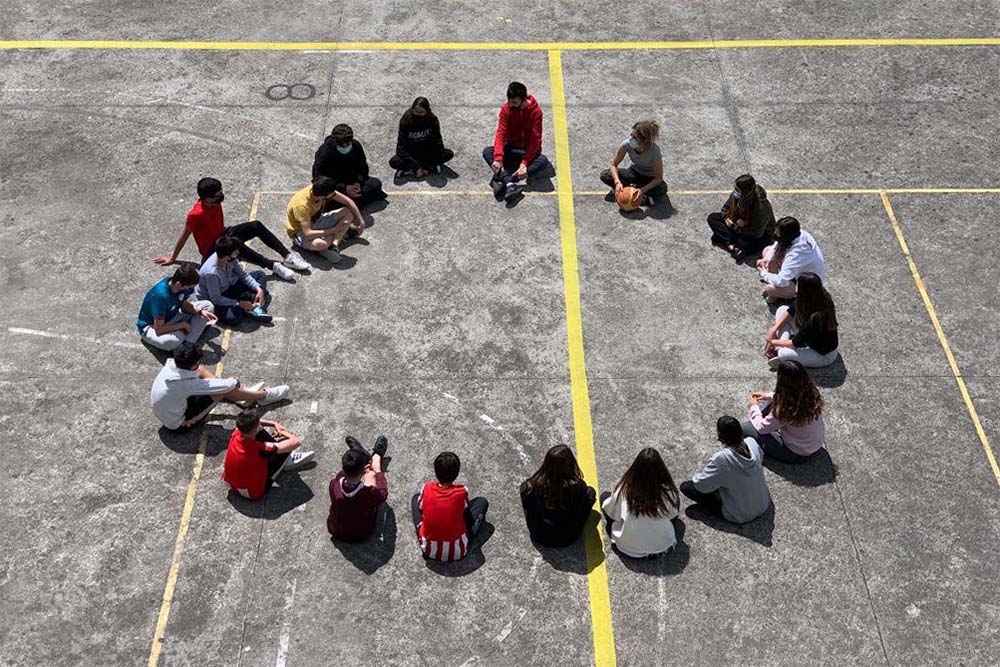Online workshop series: Youth Violence and Crime Prevention in the Context of COVID-19

Countries around the world are grappling with the many harmful effects of the COVID-19 pandemic, including health and socio-economic impacts. Young people are particularly vulnerable to the disruptions the pandemic has caused, and many are now at risk of being left behind in education, economic opportunities, and health and well-being during a crucial stage of their life development. Many of the hardships faced during the COVID-19 crisis are also known risk factors associated with crime, violence and drug use, and may expose youth to increased victimization and involvement with crime during and after the pandemic.
To contribute to the global effort required to continue supporting and engaging youth during the COVID-19 era, UNODC, in the context of the Youth Crime Prevention component under the Global Programme for the Implementation of the Doha Declaration, will organize a series of online workshops on youth crime and violence prevention during and after the pandemic in different parts of the world.
Objectives of the workshops
- Raising awareness of the impact of COVID-19 on children and youth, with a focus on crime, violence and drug use, and associated risk factors;
- Sharing experiences across countries on providing support to young people and their families to lower the risk of youth violence, crime and substance use during and after the COVID-19 outbreak;
- Exploring innovative responses that could be put in place to address increased vulnerabilities of young people as a result of the middle and long-term impacts of COVID-19, and to increase youth resilience to victimization, violence and crime during and after the pandemic.
Workshops and dates
 Webinar 2 in South Africa: Sport-based initiatives for youth crime prevention in South Africa during COVID-19
Webinar 2 in South Africa: Sport-based initiatives for youth crime prevention in South Africa during COVID-19
When: 22 October 2020 // 10:00 CET
Where: MS Teams
Register here
Agenda
Opening:
- Ms. Zhuldyz Akisheva, Regional Representative for UNODC in Southern Africa
- Mr. Marco Teixeira, Senior Programme Officer and Global Coordinator, Doha Programme, UNODC HQ - Impact of UNODC's Youth Crime Prevention initiative and lessons learned
Part I: Integrating sport in crime prevention policies and interventions
- Ms. Keri McDonald, Business Development and Fundraising Manager, TAFISA
- Mr. Stanley Mutoya, CEO, African Union Sports Council Region 5
- Mr. Hilton Stroud, Information Analyst, Directorate of Sport Development, Department of Cultural Affairs and Sport
Part II: Adapting sport-based interventions for youth crime prevention in the context of COVID-19
- Mr. Warren Lucas & Ms Raedene Lucas, Chairperson and Vice Chairperson, South Africa Youth Network for Sport, Development & Peace
- Mr. Derek Daniels, Senior Manager, Grassroots Soccer South Africa
- Mr. Luke Lamprecht, Director, Fight With Insight Programme
Q&A
Closing:
- Ms. Zhuldyz Akisheva, Regional Representative for UNODC in Southern Africa
Moderators:
- Ms. Linda Naidoo, National Project Officer, UNODC Office in Southern Africa (ROSAF)
- Ms. Georgia Dimitropoulou, Team Leader, Crime Prevention through Sports, Doha Declaration Global Programme, UNODC HQ
 Webinar 3 in Mexico: Sport-based strategies to prevent violence and crime in Mexico and new challenges facing COVID-19
Webinar 3 in Mexico: Sport-based strategies to prevent violence and crime in Mexico and new challenges facing COVID-19
When: 30 September 2020
09:00 am Mexico time
Register here
Agenda:
Moderation: Mariana Alegret, UNODC-Mexico / Teresa Navarrete, UNODC-COE Mexico
Opening: Kristian Hölge, Representative UNODC Mexico
UNODC's Youth Crime Prevention through Sport Initiative: Lucía González, UNODC HQ/Vienna
Part I: Objectives and results reached through sport-based strategies to prevent youth crime and violence
Part II: Challenges and responses to ensure continuity of sports-based interventions during COVID-19
Panelists:
- Mai Hernández Castro, Comex Program “Well done Mexico”
- Adriana Chávez Sáenz, Director of the Communitarian Foundation of the Northern Border
- Salvador Guerrero Chiprés, Citizen Council for the Security and Justice in Mexico City
- Paloma Espinosa, Director of Prevention and Citizen Participation at the Ministry of Public Security in the Municipality Queretaro
- José Luis Chávez Ortiz, Coach from the Integral Centers for Social Prevention (CIPRES) in the Municipality Queretaro
- Rafael Fonseca, Vice president of the National Association of Mexican Football
- Ana Ferraro, Education Coordinator at the Initiative Sports to Share.
 Workshop in the State of Palestine: Strengthening young people's resilience to violence amid COVID-19
Workshop in the State of Palestine: Strengthening young people's resilience to violence amid COVID-19
When: 29 September 2020
13:00-14:30 (State of Palestine time)
Register here
Agenda:
Moderation: Khaldoun Oweis- UNODC- State of Palestine
Opening remarks: Mirna Bouhabib-UNODC- Egypt
Session I: Young people amid COVID-19: (Risk and Resilience Factors) Introducing major challenges and sharing experiences of and best practices on providing support to youth and their families, with a focus on innovative approaches to address risks of crime and violence.
Session II: UN response to COVID-19 Supporting young people amid the pandemic and exploring effective and innovative responses to address increased vulnerabilities of the Palestinian youth to crime, violence and other risky behaviors.
Session III: Q&A
Closing of the session by UNODC
Panellists:
- Mohamed Dawoud, Head of Sports Establishments and Line Up Live Up Trainer, Higher Council for Youth & Sports
- Abdelhakeem Abu Jamous, Director-General of Student Activities, Ministry of Education
- Yamun Masri, Youth Representative, Sports 4 Life
- Shaheen Tuleeb, Youth Representative, Palestine Red Crescent Society
- Sima Alami, Programme Officer / Youth, UNTG for Youth
- Rana Khawaldeh, Physical education teacher and Line Up Live Up Instructor, UNRWA
 Webinar 3 in Peru: Youth and violence prevention through sport
Webinar 3 in Peru: Youth and violence prevention through sport
When: 11 September 2020, 19:00 Peru time
Live streaming via Facebook Live of SENAJU and the Municipality of Chiclayo
Agenda:
Moderation: Karla Paredes - Agents of Change for Education
National Youth Policy and Youth as Agents of Change - Cynthia Cano, SENAJU
Crime prevention through sport - Augusto Fuentes, Line Up Live Up trainer, Mi Perú
Sport, prevention and a culture of peace - Cecilia Caparachín, Researcher
Sport and its application in contexts of violence - Pedro Pérez, Newton College
Youth participation to prevent violence- Karina Villegas, Provincial Municipality of Chiclayo
 Webinar 2 in Peru: Physical activity and sport as a means for social integration and violence prevention
Webinar 2 in Peru: Physical activity and sport as a means for social integration and violence prevention
When: 10 September 2020, 19:00 Peru time
Live streaming via Facebook Live of SENAJU and the Municipality of San Martín
Agenda:
Moderation: Karla Paredes - Agents of Change for Education
National Youth Policy and Youth as Agents of Change - Rosemary Fernández, SENAJU
Sport as a tool for social development in a crisis situation - Ana Buey, Laboratorio Investigación Deportiva
Experiences promoting sport in Metropolitan Lima - Tania Ruiz, Municipality of Metropolitan Lima
Project management to promote peaceful coexistence through sport and recreation - Claudia Orihuela Vidaurre, Provincial Municipality of San Martín
 Workshop in Central Asia
Workshop in Central Asia
When: Wednesday 26 August
14:00-16:00 Bishkek, Tashkent, Dushanbe time
The link to join the meeting : Join Microsoft Teams Meeting
Agenda:
Welcoming remarks- UNODC
Session 1: Sharing experiences of Central Asia countries on effective responses to youth violence and crime prevention, in the context of Covid-19 , through youth and family support programmes for skills development and empowerment.
Session 2: Supporting youth development in the context of COVID-19 through family support and positive parenting.
Q&A

Workshop East African Island States
When: Tuesday 25 August (14:00-16:00 EAT)
Register: here
The event will discuss the youth crime and violence prevention in the East Africa Island States, including in Madagascar, Mauritius and the Seychelles in the context of the social impact of COVID19, to gain insights on the challenges faced and on effective responses in the region.The event aims to discuss in particular:
- Youth crime and violence linked to poor livelihoods
- Youth crime and violence linked to organised crime

Workshop Africa coastal and mainland states
When: Tuesday 1 September (14:00-16:00 EAT) East
Register: here
The event will discuss the youth crime and violence prevention in the East Africa coastal and mainland states Island States, including Kenya, Tanzania, Rwanda and Uganda, in the context of COVID19, to gain insights on the challenges faced and on effective responses in the region. The event aims to discuss in particular:
- Low income and inequalities as risk factors that increase the likelihood of youth crime and violence
- Youth crime and violence linked to poor governance and safety
- Access to social services to prevent youth crime and victimization
 Workshop 1 in Peru in partnership with National Youth Secretariat of Peru (in Spanish): Youth and culture of peace in the context of COVID-19 - Art and sport to prevent crime and violence
Workshop 1 in Peru in partnership with National Youth Secretariat of Peru (in Spanish): Youth and culture of peace in the context of COVID-19 - Art and sport to prevent crime and violence
When: 11 August 2020
10:30 Peru time
Public transmission via Facebook Live/Youtube/Instragram of SENAJU (Secretaría Nacional de la Juventud, Perú)
Agenda:
Moderation: Julio Corcuera, UNODC Peru
National Youth Policy and youth as agents of change - José Montalvo, National Youth Secretary, SENAJU
Challenges facing youth in Latin America in the COVID-19 context - Ernesto Rodríguez, Director of the Latin American Youth Centre, CELAJU
Let's move things, shall we dance? - Vania Masías, President and Founder of the cultural association D1
Sport for prevention and development - Alison Rodríguez, Gymnastics Club, Trujillo
Line Up Live Up, preventing violence through sport - Víctor Hugo Candela, Football trainer from the municipality Villa María del Triunfo
Conclusions - Joan Taboada, Research and Evidence Centre
 Workshop 2 in Mexico (in Spanish)
Workshop 2 in Mexico (in Spanish)
When:
5 August 2020, 9:00 Mexico City time
Online (MS Teams)
Register here
Agenda
Moderation: Teresa Navarrete, UNODC Mexico/CoE
Opening: Kristian Hölge, Representative, UNODC Mexico
Recap webinar 1 and context: Lucía González, UNODC HQ/Vienna
Part I: Youth participation at the local level for effective responses to violence and crime
Part II: Responses to face greater risks and vulnerabilities during and after COVID-19 with a gender perspective
Panellists:
-
Majo Rodriguez, National Association for Stock Car Auto Racing (NASCAR)
-
José Antonio Pérez Islas, Universidad Nacional Autónoma de México (UNAM)
-
Alfredo Nateras, Universidad Autónoma Metropolitana (UAM)
-
Gerardo Olloqui, Youth Institute of Michoacán
 Workshop 1 in Mexico (in Spanish)
Workshop 1 in Mexico (in Spanish)
When:
29 July 2020, 9:00 Mexico time
Online (MS Teams)
Register here
Agenda
Welcome/moderation: Markus Gottsbacher, UNODC Mexico
Opening remarks: Kristian Hölge, Representative of UNODC Mexico
Introduction and UNODC Youth Crime Prevention initiative: Lucía González, UNODC HQ/Vienna
Panel discussion I: Impacts of the pandemic on youth
Panel discussion II: Responses and strategies to the challenges during and after the pandemic
Panelists:
-
Isabel Aguilar, Catholic Relief Services
-
José Alfredo Betancourt Zavaleta, Universidad Vercruzana
- Tere Almada, CASA A.C. / Universidad Autónoma de Ciudad Juárez
-
Roberto Valladares Piedras, Lantia Consultores
Workshop in South Africa (in English)
When: 22 July 2020
14:00 in South Africa and Vienna (CETS)
Online (MS Teams)
Join the meeting here
Agenda
Welcome: Ms. Zhuldyz Akisheva, Regional Representative for UNODC in Southern Africa
Opening remarks: Ms. Nardos Bekele-Thomas, Resident Coordinator of the United Nations in South Africa
Context of webinar series and Doha Programme: Mr. Marco Teixeira, Senior Programme Officer, UNODC HQ
Address on Youth at the helm: a breakdown in social cohesion as a threat to crime: Prof. Mzi Nduna, Ass. Prof at WITS University & Oyama Tshona, Researcher on GBV & SRHR
Address on Lived Experiences of Youth violence in South Africa: Ms. Keitumetse Fatima Moutloatse, Youth representative
Address on Youth Violence and Crime Prevention Measures during COVID-19 and beyond. The 2016 White paper on Safety & Security and its applicability to the pandemic: Ms. Bilkis Omar, Chief Director - Civilian Secretariat for Police
Address on Current and Future Priorities for South Africa: Ms. Hendrietta Ipeleng Bogopane-Zulu, Deputy Minister of Social Development
Q&A session: Ms. Lucía González, Crime Prevention and Criminal Justice Officer, UNODC HQ
Closing remarks: Ms. Zhuldyz Akisheva, Regional Representative for UNODC in Southern Africa
Moderator: Ms. Linda Naidoo, National Project Officer-GBV, UNODC South Africa
Workshop Latin America and the Caribbean (in Spanish)
When: 17 July 2020
9:00 in Colombia, Mexico, Peru
10:00 in Dominican Republic
16:00 in Vienna
Where:
Online (Microsoft Teams): Registered participants will receive a link to join the event.
Register here
Agenda
Opening: Marco Texeira - Coordinator of the Global Programme for the Implementation of the Doha Declaration, UNODC
Panellists session I: Risk factors of youth crime and violence in the context of COVID-19
- Arturo Alvarado - Professor, College of Mexico, Mexico
- Cecilia Caparachín - Specialist on Youth Violence and Crime, Gender and Discrimination, Peru
- (CT) Andrés Posada - Coordinator of the Department of Illicit Recruitment, Ministry of National Defense, Colombia
- Luis Norberto Verges - Clinical Psychologist and Director of the Centre of Behavioural Interventions, General Prosecutors Office, Dominican Republic
Moderation: UNODC Colombia
Pause – musical performance by youth from the Civil Association CREEANDO, Peru
Panellists session II: Actions to prevent youth crime and violence during and after the pandemic
- Divina García Vásquez – Expert responsible for the Unit of Family Support, Ministry of Education, Dominican Republic
- Malory Briceño - Crime Prevention Specialist in the Department of Children and Adolescents, Colombian Institute of Family Welfare, Colombia
- José Montalvo - National Youth Secretary, Peru
- Pablo Vázquez Camacho - Subsecretary of Prevention and Citizen Participation, Secretariat for Citizen Security in Mexico City, Mexico
Moderation: UNODC Peru
Conclusions and closing: UNODC Mexico
Background
The COVID-19 pandemic has resulted in severe health, economic and social impacts around the world. The harmful effects of this pandemic are most damaging for those in already disadvantaged or vulnerable situations, and anecdotal data indicates that COVID-19 will further increase inequalities, discrimination and marginalization.
Young people are particularly vulnerable to the disruptions the pandemic has caused, and many are now at risk of being left behind in education, economic opportunities, and health and wellbeing during a crucial stage of their life development. Over 1.3 billion people are not able to go to school due to school closures (UNESCO, 2020), and the increase in unemployment rates due to COVID-19 is expected to exceed that experienced after the 2009 financial crisis (UNDESA, 2020).
Many of the hardships faced during the COVID-19 crisis are also known risk factors associated with crime, violence and drug use, and may expose youth to increased victimization and involvement with crime during and after the pandemic. Such risk factors, accentuated by confinement and restriction measures, include limited access to education and employment, inequality, stress within families/households, poor mental health and wellbeing, and loss of social and community networks.
The 2.34 billion children and youth currently under some form of confinement due to COVID-19 are at higher risk of exploitation, violence and abuse (UNICEF, 2020), including domestic violence and cyberbullying. Children and young people are less likely to seek help and contact support services, and owing to lockdown measures, they may have also limited access to positive coping mechanisms they may turn to in times of crises, such as community service, formal or nonformal education, sports and other types of physical activity. In this context, young people may turn to negative coping mechanisms such as alcohol, drug abuse, and self-harm (Compact for Young People, 2020).
While some parts of the world have witnessed decreases in homicides and other types of crime during COVID-19, organized crime and youth gangs have continued to operate violently in some regions (UNODC/CCSA, 2020) and there have been reports of criminal groups enforcing health measures and offering services to citizens in an attempt to generate more support in local communities. It is clear that prolonged socio-economic and mental health challenges experienced by youth and their families could result in increased youth crime, violence and victimization further down the line. In this context, it is essential to invest in prevention efforts now, ensure continuity of support services and opportunities for positive youth development during and after the pandemic.
This unprecedented crisis calls for strong, timely and comprehensive responses that ensure the physical and mental well-being of young people. Key elements of the response to prevent youth violence include prioritizing the continuity of services for families, parents, children and youth, including community-based programmes. To this end it is essential to sustain funding and investments in young people’s education, life skills development, employment and recreation/sports opportunities, strengthening parenting skills, and ensuring availability ofand access to support services. As key agents of change, young people are responding to the crisis through public health promotion, volunteering and innovation, and they will be key to an inclusive recovery.
To contribute to this global effort required to continue supporting and engaging youth during the COVID-19 era, UNODC, in the context of its Youth Crime Prevention initiative under the Global programme for the Implementation of the Doha Declaration, will organize online workshops on youth violence and the aftermath of the pandemic, with the engagement of relevant State actors, UN entities, academia, civil society organizations and youth associations.
References:
- UN Policy Brief: The Impact of COVID-19 on children,15 APRIL 2020: https://unsdg.un.org/sites/default/files/2020-04/160420_Covid_Children_Policy_Brief.pdf
- UNDESA, 2020: Policy Brief #67: Protecting and mobilizing youth in COVID-19 responses
- UNESCO, 2020: COVID-19 Educational Disruption and Response.
- UNODC in CCSA, 2020: How COVID-19 is changing the world: a statistical perspective
- Compact for Young People in Humanitarian Action, 2020: COVID-19, Working for and with young people
-
Regional Report on Youth Policies and Violence Prevention in the Great Lakes Region, 2nd Year, 2012, https://unesdoc.unesco.org/ark:/48223/pf0000217098_eng
-
https://www.youthpolicy.org/nationalyouthpolicies/




